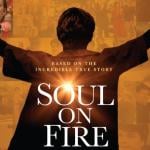
I’m delighted that we’re rapidly approaching the debut of the Lee Groberg film Joseph Smith: American Prophet, which is a substantial revision of the 1999 PBS film, also directed by Lee Groberg, titled American Prophet: The Story of Joseph Smith:
https://vimeo.com/226371146/3599537230
Happily, those who have created this new film were able to retain the original’s narration by the late great Gregory Peck.
***
Here’s a new blog entry from Matt Roper, formerly a colleague of mine at FARMS and the Neal A. Maxwell Institute for Religious Scholarship, and now affiliated with Book of Mormon Central:
“What is the significance of chiasmus in the Book of Mormon?”
It offers a number of worthwhile links to articles that you might want to explore.
***
The invaluable Robert Boylan calls our attention to this helpful item regarding one of the most controversial aspects of the life of Joseph Smith:
“Q&A: Joseph Smith’s Polygamy: Separating Fact from Fiction”
***
I was busy deleting some old computer files and came across a curious item. I’m not quite sure where it came from, nor who wrote it nor when, but it’s addressed to me:
If you want to know if Mormonism is hurtful – listen to the critics. Validate their experiences, don’t diminish them. Don’t blame their trauma on their faithlessness.
Invalidating people who are really struggling with religious issues tends to increase their self doubt and hopelessness. They feel broken and alone for not fitting in with the indoctrination.
I would recommend that you Dan Peterson recuse yourself from any such conversations in the future. Your own talk shows that you have the smell of blood on your hands if not the stain.
Speak to struggling members leaving the JW or Christian Science or other faiths also being disrupted by the Google age. Mormon bitter apostates are no less traumatized.
I suppose that I’ll respond to it here, since I can’t recall whether or not I responded directly to its author and since it expresses sentiments that I’ve encountered more than once. (I won’t bother with the hyperbolic claim that I have blood on my hands, nor with the unreasonable demand that I should never again enter into discussions of the merits or demerits of my church and faith.)
First of all, yes, it’s important to respond to earnest and suffering people with as much charity and sympathetic understanding as one can muster. That, I think, goes without saying for any serious disciple of Christ and, for that matter, for any reasonably decent person.
Having said that, I don’t think that listening to critics is the only thing that one must do in determining whether Mormonism is “hurtful.” Don’t the voices of those who seem to be satisfied with their Church membership count, as well? And don’t we need to try to sort truth from falsehood? Might some sociological and statistical and other data not be useful?
At the height of a messy and angry divorce between two people who have been one’s good friends, it would seem to me to be unfair and unwise simply to take at face value the complaints or allegations of one spouse about the other.
Talk of “validating,” and of not “invalidating,” the experiences of people who claim to have been hurt seems to me a reasonable request if it signifies taking them seriously and responding empathetically. If, however, it means that one must believe everything such people say and grant its complete accuracy without question, then it strikes me as a form of emotional blackmail and as remarkably cavalier and indifferent toward truth.
To take a dramatic parallel: There are, of course, genuine rapes. And rape is a terrible crime. Moreover, rape victims have often, historically, been treated with cold and wounding skepticism. I should hardly need to say that such responses are horribly wrong. On the other hand, not every allegation of rape is true — and those who are accused of the offense are also entitled to a fair hearing and to justice.










